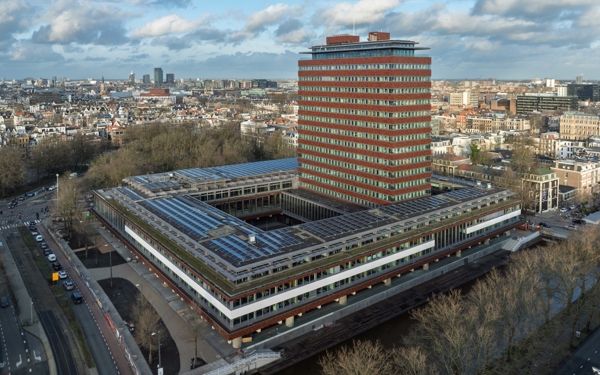Banks having their registered office in a European Economic Area (EEA) country are entitled to carry on permitted activities in the Netherlands by either opening a branch office in the Netherlands, or by providing services to the Netherlands. The EEA brings together the EU Member States and Norway, Iceland and Liechtenstein in a single market. These pages refer to these EEA countries as "member countries".
Right of establishment (branch office) or provision of cross-border services
A branch office is a physical place of business in the Netherlands operated by a bank having its registered office in another member state. If this bank does not have a physical presence, but provides its services into the Netherlands directly from its home member state, this is referred to as cross-border service provision. In both cases, this requires a licence from the supervisory authorities in the member state from which the bank operates.
EEA passporting
Pursuant to the Capital Requirements Directive 2013/36/EU, banks authorised in their home member state are permitted to operate in any other member state. This is known as "passporting". However, if a bank wants to use its passporting rights, it must hold a licence issued in its home member state that should at least cover the activities or services to be performed in the host member state. In addition, the bank must follow a passporting notification procedure.
The supervision of banks from other EEA member states – and, hence, their branch offices in the Netherlands and/or their cross-border services into the Netherlands – rests with the supervisors of the home member states, also known as “home supervisors”. As the "host supervisor", DNB is responsible for integrity supervision of branch offices only. If banks from other EEA countries provide cross-border services into the Netherlands only, supervision rests entirely with the home supervisor. Funds invited and received from the Netherlands by banks from other EEA countries as part of passporting are not covered by the Dutch Deposit Guarantee System.
Notification procedure
Before taking up its activities, a bank must go through the notification procedure via the supervisor in the host member state. Notification at least includes an overview of the activities to be carried out, and applies irrespective of whether the EEA bank intends to open a branch office or provide cross-border services. If a bank wants to open a branch office additional information is required, including details of day-to-day policymakers, operational management, and capital requirements. The amount of information to be provided depends on the risk profile of the branch office’s activities.
In case of any changes, the EEA bank must again follow the notification procedure through both home and host supervisor. This for instance happens when EEA banks want to launch new activities, or when the details of their notification change.
After the bank has completed the notification procedure with its home supervisor, the latter notifies DNB within thirteen weeks of receiving the necessary information. The only exception to this rule is if the home supervisor has reason to doubt the soundness of the bank's operating structure or financial position. The home supervisor forwards a copy of its notification to DNB to the EEA bank.
After receiving the complete notification package, DNB has two months to prepare its integrity supervision of the branch office in question. This two-month period starts only after DNB has received all information it requires to form an adequate opinion of the new branch office’s risk profile. Contrary to cross-border service provision, the activities of a branch office may not start until two months after DNB has confirmed receipt of the full notification, or after it has informed the EEA bank, through its home supervisor, of any additional conditions to be observed in the public interest.
After completing the notification procedure, the EEA bank is entered in a public register maintained by DNB.
Fee
A notification by a foreign institution will be considered free of charge. However, DNB does charge a fee for its integrity supervision of the branch office.


